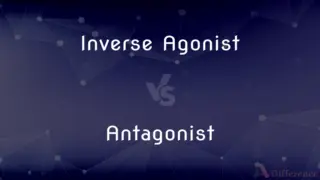Natural Gas vs. LPG — What's the Difference?
By Tayyaba Rehman & Maham Liaqat — Published on August 19, 2024
Natural Gas is primarily methane with a mix of other gases, used for heating and cooking. LPG, or Liquefied Petroleum Gas, is propane or butane, stored as a liquid under pressure.

Difference Between Natural Gas and LPG
Table of Contents
ADVERTISEMENT
Key Differences
Natural Gas is a mixture of hydrocarbons, mainly methane, extracted from underground or undersea deposits. It's used widely for heating, cooking, and electricity generation due to its abundance and relatively clean combustion. On the other hand, LPG, short for Liquefied Petroleum Gas, is primarily composed of propane, butane, or a mixture of the two, and is produced during natural gas processing and petroleum refining. LPG is stored in pressurized tanks and is used similarly to natural gas but is more portable due to its liquefied state.
Natural Gas, being lighter than air, disperses quickly when leaked, which can reduce its risk of ignition. LPG, however, is heavier than air and can pool at ground level, creating a greater risk of ignition if leaked.
The distribution of Natural Gas is predominantly through pipelines, making it a convenient option for residential and industrial areas connected to the gas network. LPG, in contrast, is distributed in portable cylinders or tanks, making it a versatile choice for areas without pipeline infrastructure.
Natural Gas is considered to be more cost-effective for consumers connected to a supply network due to the lower costs associated with its extraction and distribution. LPG, while more expensive, offers the advantage of portability and accessibility, especially in remote or off-grid locations where natural gas pipelines are not available.
In terms of environmental impact, both Natural Gas and LPG are cleaner alternatives to coal and oil, producing fewer pollutants and greenhouse gases upon combustion. However, Natural Gas has a slight edge in terms of environmental friendliness due to its higher methane content and more efficient combustion.
ADVERTISEMENT
Comparison Chart
Composition
Mainly methane, with small amounts of other hydrocarbons
Primarily propane, butane, or mixtures of the two
State
Gaseous at normal temperature and pressure
Stored as a liquid under pressure, vaporizes when released
Distribution
Through pipelines
In pressurized cylinders or tanks
Density
Lighter than air, disperses quickly
Heavier than air, can pool at ground level
Cost-effectiveness
Generally more cost-effective for connected users
More expensive but portable and accessible without pipelines
Compare with Definitions
Natural Gas
A gaseous fuel mainly consisting of methane.
Natural gas is used for heating in many homes.
LPG
Produced during natural gas processing and petroleum refining.
LPG is obtained as a by-product of refining crude oil.
Natural Gas
Extracted from underground or undersea.
Natural gas fields are often found in offshore locations.
LPG
Stored in pressurized cylinders.
The LPG for our grill comes in a small, portable cylinder.
Natural Gas
Distributed through pipelines.
The house gets its energy from the natural gas pipeline.
LPG
Accessible without pipelines, suited for remote locations.
Rural homes often rely on LPG for heating and cooking.
Natural Gas
Lighter than air, disperses quickly if leaked.
In case of a natural gas leak, the gas will rise and dissipate.
LPG
A portable fuel stored as a liquid, comprising propane or butane.
We use LPG in our camping stove.
Natural Gas
More cost-effective for consumers with pipeline access.
Using natural gas for cooking is cheaper for residents in urban areas.
LPG
Heavier than air, can pool and create ignition risks.
It's important to store LPG cylinders in a well-ventilated area.
Common Curiosities
How is Natural Gas distributed?
Natural Gas is distributed through an extensive network of pipelines.
In what form is LPG stored and used?
LPG is stored as a liquid in pressurized cylinders and vaporizes when released.
What is Natural Gas?
Natural Gas is a fossil fuel composed mainly of methane, used widely for heating, cooking, and generating electricity.
What does LPG stand for?
LPG stands for Liquefied Petroleum Gas, a portable fuel consisting mainly of propane and butane.
Can LPG be used in places without natural gas pipelines?
Yes, LPG is often used in areas without access to natural gas pipelines due to its portability.
Why is Natural Gas considered more cost-effective?
Natural Gas is generally cheaper for users connected to the gas network due to lower extraction and distribution costs.
What are the main applications of LPG?
LPG is used for heating, cooking, and as fuel for certain vehicles and industrial applications.
What are the environmental impacts of using Natural Gas and LPG?
Both have lower emissions compared to other fossil fuels, but continuous use contributes to greenhouse gas emissions.
How does the cost of LPG compare to Natural Gas?
LPG tends to be more expensive than Natural Gas, especially where Natural Gas is readily available through pipelines.
Is Natural Gas safer than LPG?
Natural Gas is lighter than air and disperses quickly if leaked, which can reduce ignition risks compared to LPG.
Which is more environmentally friendly, Natural Gas or LPG?
Both are cleaner than coal and oil, but Natural Gas has a slight edge due to more efficient combustion.
How are Natural Gas and LPG similar?
Both are hydrocarbon gases used as fuel for heating, cooking, and in some cases, transportation.
What makes LPG a versatile fuel?
LPG's portability and the ability to be stored in cylinders make it versatile, especially for use in remote areas.
How can safety concerns be mitigated for both Natural Gas and LPG?
Proper installation, maintenance of appliances, and ensuring well-ventilated storage for LPG can mitigate safety concerns.
What are the primary uses of Natural Gas?
Heating, cooking, and electricity generation are primary uses of Natural Gas.
Share Your Discovery

Previous Comparison
Inverse Agonist vs. Antagonist
Next Comparison
Wrestling Shoes vs. Boxing ShoesAuthor Spotlight
Written by
Tayyaba RehmanTayyaba Rehman is a distinguished writer, currently serving as a primary contributor to askdifference.com. As a researcher in semantics and etymology, Tayyaba's passion for the complexity of languages and their distinctions has found a perfect home on the platform. Tayyaba delves into the intricacies of language, distinguishing between commonly confused words and phrases, thereby providing clarity for readers worldwide.
Co-written by
Maham Liaqat












































